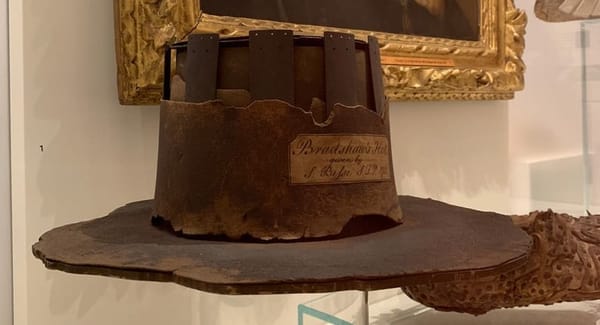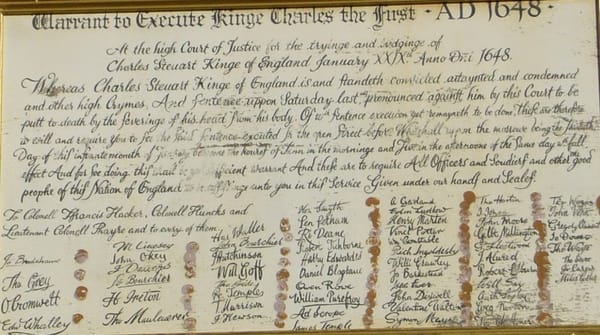The Nobel Illusion: How Alfred Nobel Turned His Eulogy into a Fortune of Guilt

In 1888, a French newspaper mistakenly published an obituary for Alfred Nobel—the Swedish chemist who invented dynamite.
Its headline read: “The Merchant of Death Is Dead.”
The mix-up wasn’t fatal, but it was transformative. Nobel was alive—and horrified. He realized this would be how history remembered him: a man who turned destruction into profit.
A few years later, he rewrote his will.
The new version gave away 94% of his fortune—equivalent to over $250 million today—to establish a series of prizes for those who “confer the greatest benefit to humankind.”
And with that single act, a weapons magnate became the patron saint of peace.
The Merchant of Death
Before the Nobel Prize, there was the Nobel factory: a network of explosives plants stretching across Europe and the Russian Empire.
Alfred Nobel’s father, Immanuel, had built his fortune making naval mines for the Crimean War. Alfred improved the recipe—stabilizing nitroglycerin to create dynamite—and turned war into a business model.
By the 1870s, his inventions were shaping everything from mining to imperial conquest. He became one of the richest men in Europe.
But the obituary changed everything. The line “The merchant of death is dead” wasn’t just an insult—it was an x-ray. It showed him his legacy.
The Eulogy That Became a Will
In 1895, Nobel signed a will that stunned his relatives and governments alike. He created five prizes—Physics, Chemistry, Physiology or Medicine, Literature, and Peace—to be awarded annually from the interest of his estate.
No family inheritance. No corporate continuation.
Just a moral inversion of his fortune.
He died a year later, in 1896, without explaining how the prizes should be administered. What followed was bureaucratic chaos and national embarrassment.
The Swedish Legal Storm
The will was vague, written without legal counsel. The family contested it.
The Swedish state balked at funding prizes for foreigners. The King himself opposed it.
For five years, lawyers and diplomats battled over what Nobel “really meant.”
It took a chemist named Ragnar Sohlman, Nobel’s trusted assistant, to salvage the plan. He turned the estate into a private foundation—beyond state control.
In 1901, the first Nobel Prizes were awarded.
The Economics of Redemption
Nobel’s foundation became a moral hedge fund: it converted guilt into cultural capital.
By institutionalizing virtue, Nobel achieved what religion and politics could not—he created a market for goodness.
Scientists, poets, and activists now competed not for power, but for prestige measured in his name.
Each medal struck in his likeness was a dividend on repentance.
The Ironies of the Peace Prize
The Nobel Peace Prize is the most controversial of all.
It has honored Martin Luther King Jr., Malala Yousafzai, and Nelson Mandela—alongside Henry Kissinger, whose involvement in the Vietnam War made even committee members resign in protest.
The contradiction reflects Nobel’s own paradox: a man who built tools for destruction hoping to buy moral immortality.
The Peace Prize doesn’t erase that irony—it preserves it.
The Brand of Virtue
Today, “Nobel” is less a name than a logo—synonymous with excellence.
Winning one adds an average of $1 million to a laureate’s lifetime income. Universities and governments use it as validation; corporations use it for marketing.
The Nobel Foundation has become what Nobel himself was: an institution that sells moral legitimacy to the highest bidder.
The Lost Sixth Prize
Few know Nobel’s will originally mentioned a sixth category—one for the arts and humanities—that was struck out after his death.
He believed art had the power to humanize science, to balance intellect with empathy. The omission left the legacy incomplete.
In a sense, the Nobel system replicates his flaw: it prizes innovation over reflection, invention over introspection.
The Merchant of Peace
Alfred Nobel never saw the first medal minted in his name. But in a cruel way, the mistaken obituary came true.
He did die as a merchant of death—he just rebranded death as progress.
And maybe that’s the true genius of Alfred Nobel: not the dynamite, but the detonation of conscience that followed it.
This article was produced with the assistance of AI tools under human direction and editorial oversight. Learn more.




